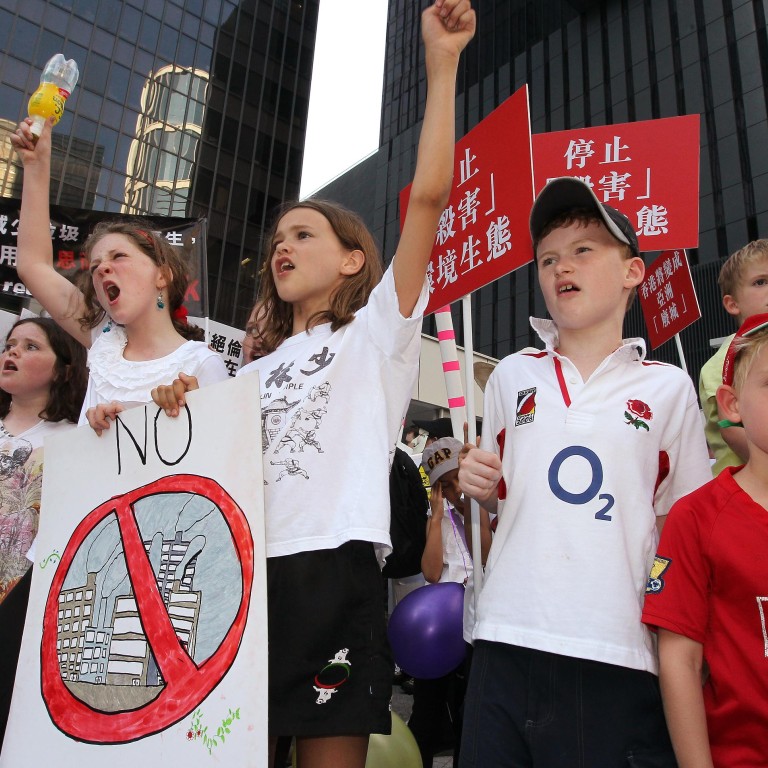
Shek Kwu Chau waste incinerator location a ‘non-issue’, says Dutch delegation
Hong Kong told to eliminate ‘Nimby’ attitude on environment issues
Hong Kong should take a page out of the Netherlands’ book and not pay compensation to residents living near the site of the planned HK$18.2 billion garbage incinerator in Shek Kwu Chau, according to a Dutch delegation.

“In the Netherlands, we decided not to compensate people near incinerators because it was proven that there were no negative effects,” said Huisman. “In our country, there is no Nimby.”
Environment secretary Wong Kam-sing said earlier this month that there might be no need to compensate people near the planned 3,000-tonne Shek Kwu Chau facility, as it was a non-issue in Europe, where citizens considered the facilities on a par with police stations, hospitals and schools.
He made the comments after a fact-finding tour across Europe, which included a stop in Amsterdam, to learn about the latest thermal waste treatment technologies.
It is understood that the government would only provide extra community facilities to residents living nearby, but direct subsidies such as a waste charge wavier or electricity bill reduction, would not be considered.
The Dutch delegation arrived in Hong Kong this week to share knowledge and expertise on waste management and incineration technology with officials from the Environment Bureau as part of two-year memorandum of understanding signed last year.
Another Dutch delegation will arrive in May to present designs and technologies that could be put up for public tender.
The government is seeking funding approval for a HK$18.2 billion waste-to-energy moving-grate system that converts waste to ash, flue gas and heat.
Huisman said that like Hong Kong, the Netherlands had suffered from a waste problem in the 1990s, with overflowing landfills and a fragmented recycling industry. But strong public education coupled with the right incentives turned the situation around.
About 80 per cent of waste in the Netherlands is now recycled and 16 per cent is incinerated and turned into energy at the country’s 12 facilities. Only 4 per cent of Dutch waste goes to landfills compared to Hong Kong’s 52 per cent.
Huisman said those who believed incineration was still a threat to the environment had an “ignorance of modern technology”.
Wilfred Mohr, consul general of the Netherlands in Hong Kong, said a waste-to-energy incinerator would be the way forward as it would reduce dependence on “cheap land-filling” and even provide solutions to Hong Kong’s fuel mix.
“Time is Hong Kong’s biggest challenge,” said Mohr. “Many people don’t realise that the landfills will soon reach capacity.”
A survey conducted by the World Green Organisation has found that only 20 per cent of 1,005 adult respondents surveyed knew that the landfills would reach capacity by 2015. Only 7 per cent knew an incinerator would take at least eight years to build.
The landfills in Tseung Kwan O, Ta Kwu Ling and Tuen Mun are expected to hit capacity by 2015, 2017 and 2019.

